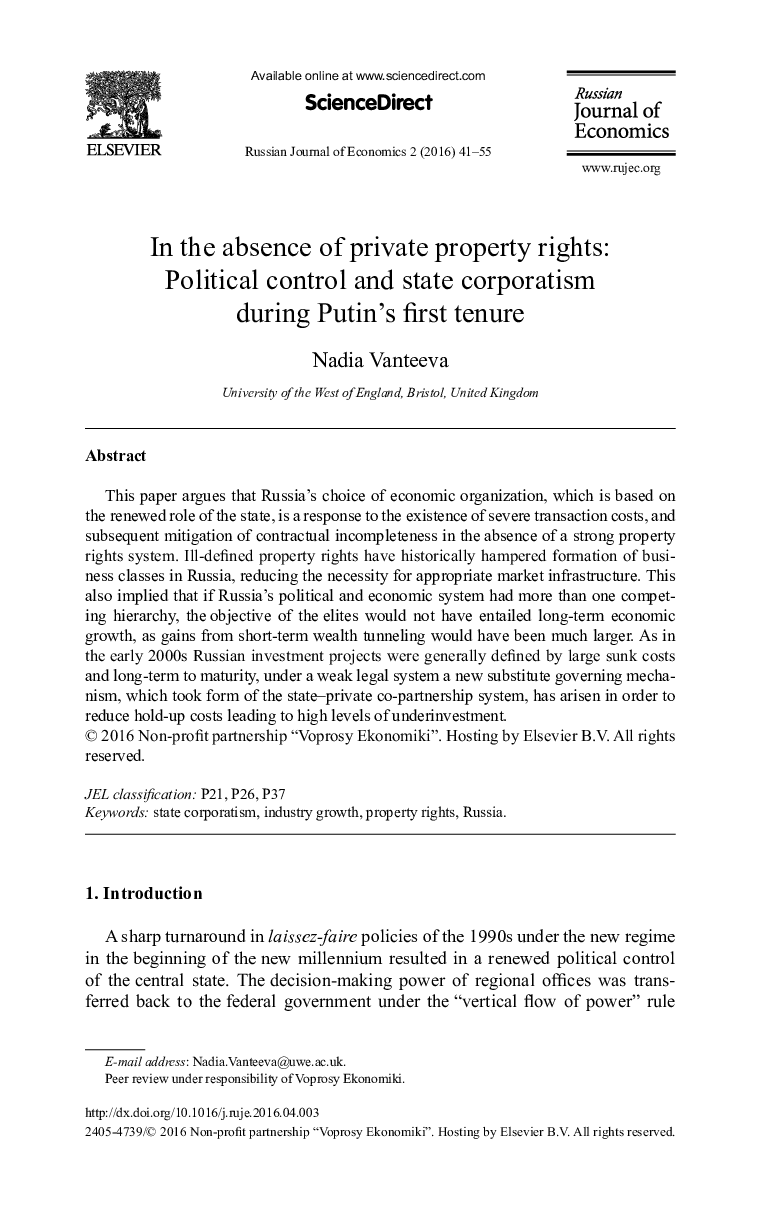| Article ID | Journal | Published Year | Pages | File Type |
|---|---|---|---|---|
| 986209 | Russian Journal of Economics | 2016 | 15 Pages |
This paper argues that Russia's choice of economic organization, which is based on the renewed role of the state, is a response to the existence of severe transaction costs, and subsequent mitigation of contractual incompleteness in the absence of a strong property rights system. Ill-defined property rights have historically hampered formation of business classes in Russia, reducing the necessity for appropriate market infrastructure. This also implied that if Russia's political and economic system had more than one competing hierarchy, the objective of the elites would not have entailed long-term economic growth, as gains from short-term wealth tunneling would have been much larger. As in the early 2000s Russian investment projects were generally defined by large sunk costs and long-term to maturity, under a weak legal system a new substitute governing mechanism, which took form of the state–private co-partnership system, has arisen in order to reduce hold-up costs leading to high levels of underinvestment.
